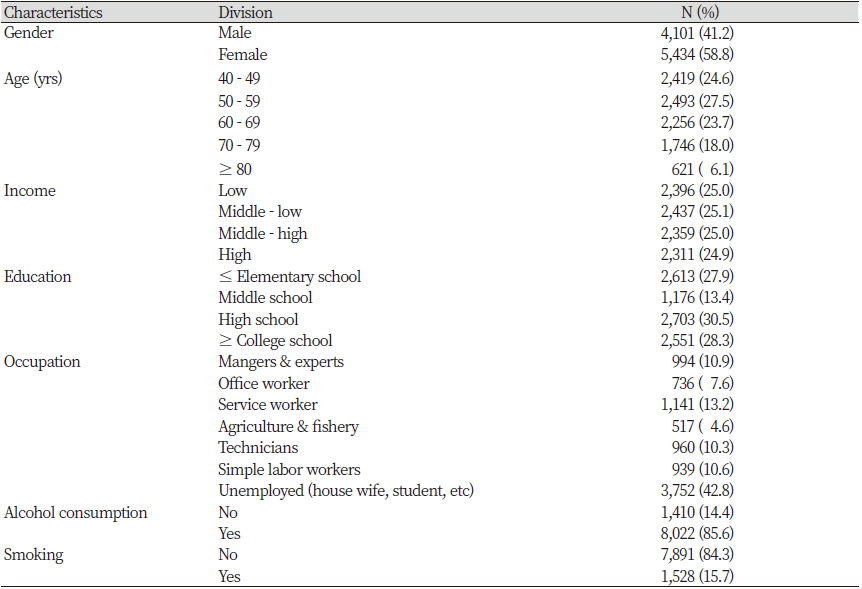Abstract
Objectives: The purpose of this study was to analyze the effect of chewing difficulty on depression in Korean adults to provide basic data on improving the quality of life related to oral health of Korean adults. Methods: The raw data of the analysis were obtained from the dataset of the seven Korea National Health and Nutrition Examination Survey conducted between 2016 and 2018. The subjects included 9,535 people who underwent oral examination and answered questions. The collected data were analyzed using the SPSS (ver 21.0) program using composite samples, and the mean crossover analysis and logistic return analysis were performed. Results: An analysis of the effects of chewing difficulty on depression in Korean adults showed that those with chewing difficulty had a 2.24 fold higher risk of depression (95% CI: 1.73-2.90) and a statistically significant difference (
Figures & Tables

Table 1. General characteristics of the subject


